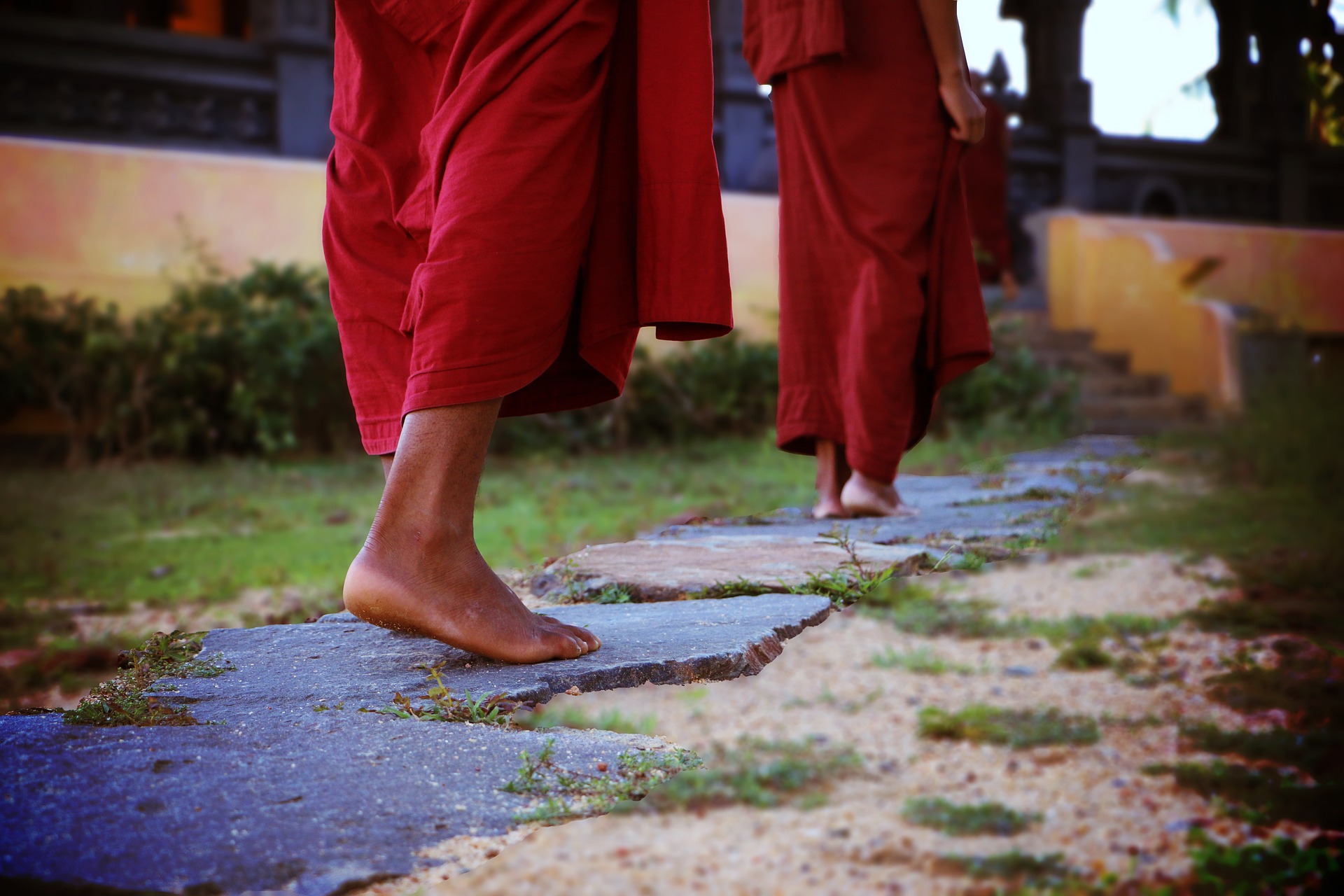The good thing about going to college was it introduced me to a lot of new ideas. I latched on to philosophy that first year and stuck with it through classes I knew nothing about but opened my eyes to experience new things. After Buddhism 101, I tried for a long time to sit still, meditate, and empty my mind. It never worked. My mind is its own special blend of ADD, PTSD, and flights of fancy. Sitting still was dangerous. Sitting was non-productive. Then my college philosophy teacher introduced me to walking meditation.
Philosophy for the win
The philosophy department offices were in a back building on a little-used side of the campus. The building echoed when you walked around. The professors shut themselves up in their offices and read or graded, or stared at the walls. (I assumed) It was the perfect place to learn walking meditation. The upstairs hall was maybe 50 feet long. Just long enough to get into the groove before the wall triggered you to turn around and start again. 50 feet for me to concentrate on the feel of tile under my sneakers, the stretch of muscles in the back of my legs. The curiously loud sound of my breathing.
My arms hung like bricks at my side, moving very little with each step. At first, I chanted in my head, “I’m walking down the hall, I’m walking down the hall. Left, right, left, right.” Each time my squirrel brain skittered off I reminded it I was walking down the hall. Repeat a word or phrase often enough and it becomes meaningless. White noise. Eventually, I graduated to walking around the courtyard of the building. More distractions outside for squirrel brain, but even those faded until the breeze on my face and grass under my feet became the new normal.
Expanding horizons
Outside of school, I learned to walk in a circle around the tiny backyard of the townhouse I rented. Circles were good, walking back and forth in the hall made my turns more conscious, more military-like than I wanted. A circle, now there was my meditation home. Slow, steady walking, each step mindful, each breath relaxed. I became aware of how my heel struck the ground first, harder than my toes.
Walking on dirt, I applied that knowledge to my footsteps in the soft ground then observed other people’s footprints and how deep the heels or toes went. Walking meditation improved my connection with nature when I went to the woods. I was aware of each step, I made less noise, which in turn let me see more wildlife. It also helped me stand still and observe without impatience.
What’s this have to do with writing?
This is the way I approach writing, walking an idea or scene around and around in my brain until I circle in on what’s right, what matters. I’m more mindful. It’s my non-corporeal walking editing. Sitting still never gave me the images that flow through my head when I walk without a specific purpose. The good thing? The crow in me ceased to look for the next shiny object.
Now, when I feel my brain winding up to scatter, I walk back and forth, even the act of circling the living room is calming if I do it mindfully. The cat, of course, thinks I’m nuts and lounges in his window perch, watching and silently judging. As long as I don’t judge myself, I’m okay with that. He disappears into the background as I circle the room, carpet underfoot, stretch of muscle in my calf and thigh, breath lighter with each circuit. The illusion of progressive movement was all I needed to let meditation into my life and writing.
Other Essays on Writing:
Staying Afloat in a Writing Ocean
Digging Weeds from the Story Garden


